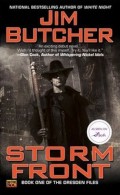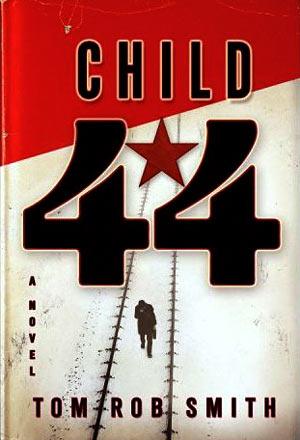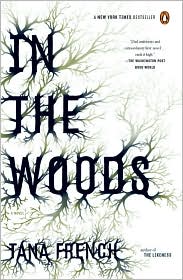Uncle said:Just started today:
http://xs140.xs.to/xs140/09241/L163.jpg
Finished The City & The City yesterday. Really liked it. I'll have to look up some more of his books.
Today I'll start American Tabloid by James Ellroy

Uncle said:Just started today:
http://xs140.xs.to/xs140/09241/L163.jpg

Probably doesn't help that the American version of Monstrous Regiment has one of the worst covers for a DW book.Uncle said:Monstrous Regiment is the only DW-book I own that doesn't have that UK cover. It bugs me way more than it should.
Night_Trekker said:I just finished:

Undeux said:Is this worth reading if you've seen the series? I just finished the series and loved it, but I wasn't sure how the book is structured.
Uncle said:Today I'll start American Tabloid by James Ellroy
http://xs140.xs.to/xs140/09253/7265.jpg


Trax416 said:Was also wondering, does anyone have any suggestions for some good, but quick reads? Don't have time to get into any new series, or doorstops, and am already partly invested into Song of Ice and fire. So I am looking for some good, quick reads to fill in the space.
Trax416 said:Was also wondering, does anyone have any suggestions for some good, but quick reads? Don't have time to get into any new series, or doorstops, and am already partly invested into Song of Ice and fire. So I am looking for some good, quick reads to fill in the space.

Watching Rape
Film and Television in Postfeminist Culture
Sarah Projansky
Looking at popular culture from 1980 to the present, feminism appears to be "over": that is, according to popular critics we are in an era of "postfeminism" in which feminism has supposedly already achieved equality for women.
Not so, says Sarah Projansky. In Watching Rape, Projansky undermines this complacent view in her fascinating and thorough analysis of depictions of rape in U.S. film, television, and independent video. Through a cultural studies analysis of such films as Thelma and Louise, Daughters of the Dust, and She's Gotta Have It, and television shows like ER, Ally McBeal, Beverly Hills 90210, and various made-for-tv movies, Projansky challenges us to see popular culture as a part of our everyday lives and practices, and to view that culture critically. How have media defined rape and feminism differently over time? How do popular narratives about rape also communicate ideas about gender, race, class, nationality, and sexuality? And, what is the future of feminist politics, theory, and criticism with regard to issues of sexual violence, postfeminism, and popular media?
The first study to address the relationship between rape and postfeminism, and one of the most detailed and thorough analyses of rape in 25 years, Watching Rape is a crucial contribution to contemporary feminism.




nyong said:I started reading The Road and I've gotta say, I am not a fan of a his prose.
"He pulled the blue plastic tarp off of him and folded it and carried it out to the grocery cart and packed it and came back with their plates and some cornmeal cakes in a plastic bag and a plastic bottle of syrup."
Costanza said:it's been a long time since i've read them, but..
book 1: good
book 2: great
book 3: great
book 4: fantastic
book 5: great
book 6: didn't need to be a book
book 7: mostly great, ending is divisive



CiSTM said:Finally started reading Underground by Murakami. Not liking it too much but it gives some new info about the Aum Shinrikyo and that is enough for me.
Mifune said:That's seriously one of the most devastating books I've ever read. Good luck.
CiSTM said:I found it to be quite boring. Most of the inteviews were so unpersonal that I just couldn't get connection for their suffering. There were some really touching stories too that really made me think about the consequences of the attack. For some reason I just didn't like it that much. It wasn't bad but not great either.
...Then again I almost read it on one sit so there must be something compelling about it.
Mifune said:That's the thing, though. Murakami doesn't approach the interviews from a normal tragedy survivor perspective. And he's not out to shed light on Aum.
He's more interested in the philosophical meaning behind the events. Murakami's novels are fairly impersonal, and I am amazed that he was able to write a non-fiction book based solely on interviews where the subjects sound like characters from one of his novels.






CiSTM said:Yep, I understand this. But this is the fact that made it boring to me. Every story was pretty much the same and after you read one you had read them all... Well okay that was overstating it but I just didn't see the point in this book. I admit that Murakami did the right thing when he chose the 'ordinary' writing style but it just didn't do it for me.
oin endurance bibliophiles from around the world in reading Infinite Jest over the summer of 2009, June 21st to September 22nd. A thousand pages1 ÷ 92 days = 75 pages a week. No sweat.
1. Plus endnotes a.
a. A lot of them.
Monroeski said:Finished -

Finished -

Currently Reading -

Pretty good series so far, but the last sentences of every chapter are kind of annoying. It loses the impact when you see something along the lines of "suddenly things aren't looking good" or "oh I'm so outgunned right now" at the end of 99% of the chapters.
Mifune said:The book is repetitive, definitely. But why?
Is it because Murakami just needs to edit his work better? Or is it intentional? I think it's the latter.
By showing how different people recount the traumatic event in remarkably similar ways (not really what they are saying as much as HOW), he seems to be taking a look at the Japanese (and largely human) mindset. How is it that so many of these different interview subjects retell horrible tragedy in such matter-of-fact tones? Why is it that some of the victims actually continued on their way to work after nearly dying, and watching others die, from a poison gas atttack? Murakami isn't passing judgment on the subjects' behavior, but just asking why.
And finally, does any of this human behavior have anything to do with why someone could murder so many people in the first place? I mean, you have to admit, the Aum members Murakami talks to sound an awful lot like the victims.
I think the book is just an attempt to understand what happened from a psychological and philosophical perspective. He doesn't have the answers but he's asking the right questions and maybe even shedding a little light on our own behavior in the process.
EDIT: Good point about the passengers.
"Sorta" Christian? That's the understatement of the century.gdt5016 said:An I also picked up what I now know to be books 1-6 in Tim LaHaye and Jerry B. Jenkins' "Left Behind" series. Which (I gather from skimming through Amazon right now) are sorta "Christian" books. They had nice covers and synopsis' so I picked them up. Ugh.
Dan said:"Sorta" Christian? That's the understatement of the century.
gdt5016 said:Have you read them? And they still good (as long as I get over the religious stuff)?
Monroeski said:Pretty good series so far, but the last sentences of every chapter are kind of annoying. It loses the impact when you see something along the lines of "suddenly things aren't looking good" or "oh I'm so outgunned right now" at the end of 99% of the chapters.
gdt5016 said:So I just picked up some books in the library (bought em), what does GAF know/think about them?
An illustrated (by Michael Whelan) version of The Gunslinger (Book I of Stephen King's The Dark Tower). Is anything cut out of this one? Or is it the original text + illustrations?

cody said:If you just mean it has a few panels of illustration throughout the book, it's unabridged text (original text, not the revised version). If every page is illustrated, I've never seen it so couldn't tell you. I know Whelan did the art for the former though.




gdt5016 said:Ugh.
I did a bit more research and the authors (at least one) was a pastor. And the other writes for the "Moody Bible Institute."
I should've skimmed the synopsis' better at the library.
I figured it was kinda similar to "The Stand," at least in a post-apocalyptic way. I don't really want to be converted.
Have you read them? And they still good (as long as I get over the religious stuff)?
Tokubetsu said:I cannot put The Road down. I've had it for less than 3 days and I'm almost done ='(
